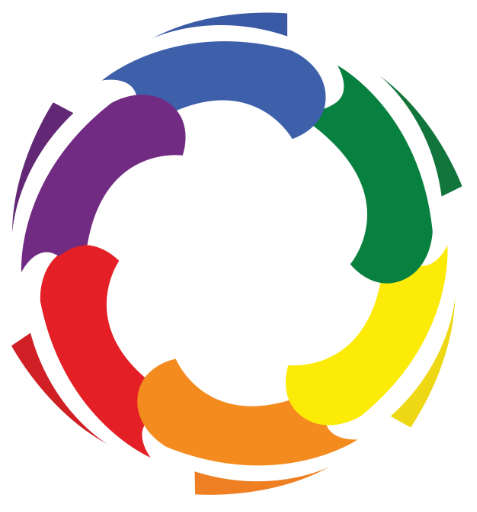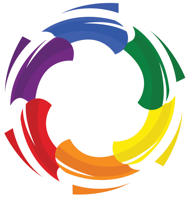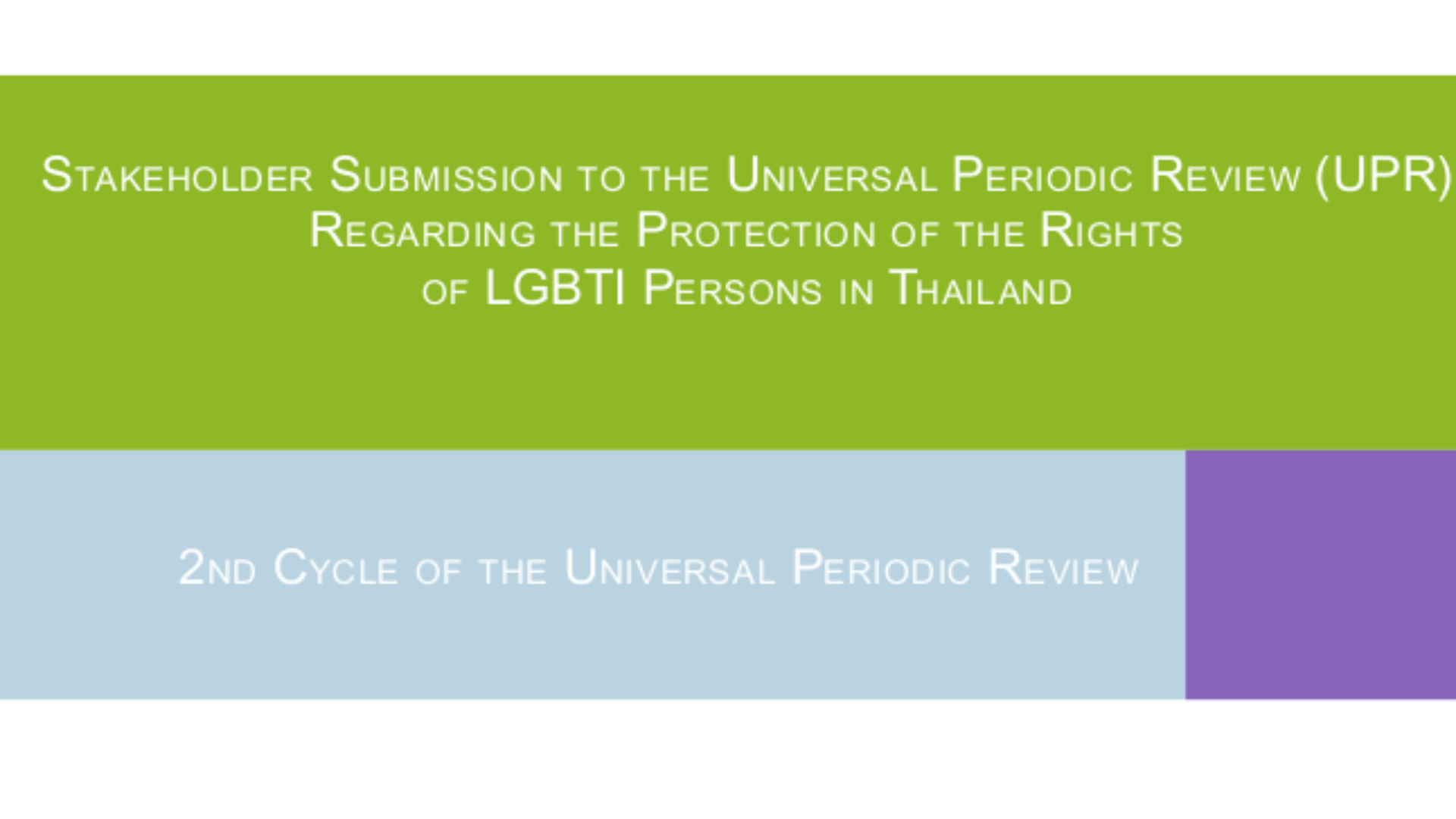Thailand pushes for equal rights in the 2nd Cycle of the Universal Periodic Review. LGBTIQ groups in Thailand, led by the Togetherness for Equality and Action Group (TEA Group) have submitted a UPR report detailing the lack of specific provisions in national law that would help LGBTIQs gain a more participative, non-discriminatory position in the Thai community.
The submitted UPR report includes 7 areas of concern: Employment, Health, Family, Intersectionality, School and Education, Media and Publications, and Human Rights Defenders (HRDs). The running theme of the report is to ensure non-discrimination on the basis of sexual orientation, gender identity and expression, and sex characteristics (SOGIESC). The analysis and recommendations submitted by Thai LGBTIQ groups are included in this post for further reference and awareness-building.
Thai LGBTIQ rights advocate Nada Chaiyajit says that it's very important for human rights groups across the region to contribute to drafting a UPR. According to Chaiyajit, the UPR is one of the key mandates of the UN Human Rights Council, and is a unique mechanism as well as an important political process for advancing specific human rights concerns on an international level.
“We need the eyes of the World to push our governments for change, so UPR is one of high potential human rights mechanisms designed to bring the voices of LGBTIQ and other marginalized groups on the ground to be heard by UN State members,” says Chaiyajit. “It also allows our communities to submit the report as a private or joint submission, together with their government and NHRI. The state under review may accept or ignore these critiques and recommendations, but if accepted, there are some guarantees that the state will be obligated to improve National Policy or domestic legislation."
When asked about the importance of bringing domestic policy concerns to an international platform such as the UPR, Chaiyajit sums it up in two words: “Community Empowerment. It is a ground breaking process that brings together LGBTIQ advocates from all over the country to speak up on their human rights issues, challenges, cases, and concerns. From victim to survivor, our narratives are the first witness to the oppression experienced by marginalized groups. The UPR, essentially, is one of the best ways for us to practice bottom-up policy formation.”
Chaiyajit recognizes that the UPR process would not be possible without the help of relevant human rights groups in the region:
“We have to thank UPR Info, the only organization in the world focusing on the UPR process by promoting a cooperative implementation of UPR recommendations among stakeholders in order to advance human rights situations on the ground. They act as a bridge between SOGIESC communities and diplomats by organizing 'UPR Pre-sessions', where SOGIESC representatives are given an opportunity to speak our voices in front of diplomats in the Permanent Mission of United Nations at Geneva. Together with ILGA WORLD, this organization provides technical support as the International experts on the UN mechanism on SOGIESC Rights, so diplomats hear the human rights situation directly from those who experience it.”
Chaiyajit also deems it important to thank the LGBTIQ NGOs coalition for UPR that keep on believing and fighting for the community's rights movement in the region. Without the local and international NGOs working with stakeholders, it wouldn't be possible for people on the ground to gather and air their concerns on a legimate platform toward policy reform.
UPR ILGA
{aridoc engine="google" width="600" height="800"}images/2016/UPR-ILGA.pdf{/aridoc}
UPR Report Thai
{aridoc engine="google" width="600" height="800"}images/2016/UPR-Report-Thai.pdf{/aridoc}




